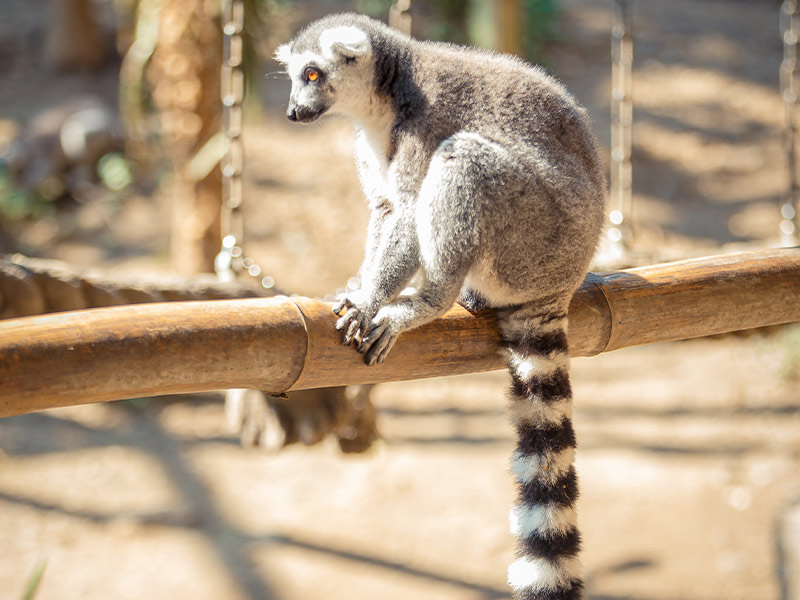The ring-tailed lemur is found only in southern and southwestern Madagascar.
Prosimians are predominantly arboreal, with the exception of the ring-tailed lemur, which spends up to one-third of its time on the ground. It has nails, not claws, on its toes, which allow it to manipulate and grasp objects with ease.
It is a very sociable species, forming groups of between 5 and 25 specimens with a core of adult females that show a well-defined hierarchy among themselves and over any male. The young remain with their mothers and sisters until they grow up and move to other groups.
Females give birth to one or two young. Newborns spend their first two weeks of life mounted on their mothers' bellies and after this time they ride on their mothers' backs and begin to explore their surroundings.
Habitat loss and hunting are the main causes of concern. Its area of distribution will continue to decrease due to the practice of burning to create new pastures for livestock and the cutting of trees for charcoal production. In addition to these threats, the ring-tailed lemur is also hunted for food and for illegal pet trade.
The Selwo Aventura group is part of the European Endangered Species Program (EEP) of the European Association of Zoos and Aquariums (EAZA).























